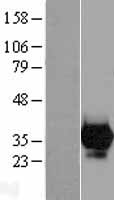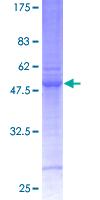order histories, retained contact details for faster checkout, review submissions, and special promotions.
Forgot password?
order histories, retained contact details for faster checkout, review submissions, and special promotions.
Locations
Orders Processing,
Shipping & Receiving,
Warehouse
2 Shaker Rd Suites
B001/B101
Shirley, MA 01464
Production Lab
Floor 6, Suite 620
20700 44th Avenue W
Lynnwood, WA 98036
Telephone Numbers
Tel: +1 (206) 374-1102
Fax: +1 (206) 577-4565
Contact Us
Additional Contact Details
order histories, retained contact details for faster checkout, review submissions, and special promotions.
Forgot password?
order histories, retained contact details for faster checkout, review submissions, and special promotions.
CA7 / Carbonic Anhydrase VII
carbonic anhydrase VII
Carbonic anhydrases are a large family of zinc metalloenzymes that catalyze the reversible hydration of carbon dioxide. They participate in a variety of biological processes, including respiration, calcification, acid-base balance, bone resorption, and the formation of aqueous humor, cerebrospinal fluid, saliva, and gastric acid. They show extensive diversity in tissue distribution and in their subcellular localization. The cytosolic protein encoded by this gene is predominantly expressed in the salivary glands. Alternative splicing in the coding region results in multiple transcript variants encoding different isoforms.
| Gene Name: | carbonic anhydrase VII |
| Synonyms: | CA7, Carbonic anhydrase VII, Carbonic dehydratase VII, CAVII, Carbonate dehydratase VII, Carbonic anhydrase 7, CA-VII |
| Target Sequences: | NM_005182 NP_005173.1 P43166 |





If you do not find the reagent or information you require, please contact Customer.Support@LSBio.com to inquire about additional products in development.









